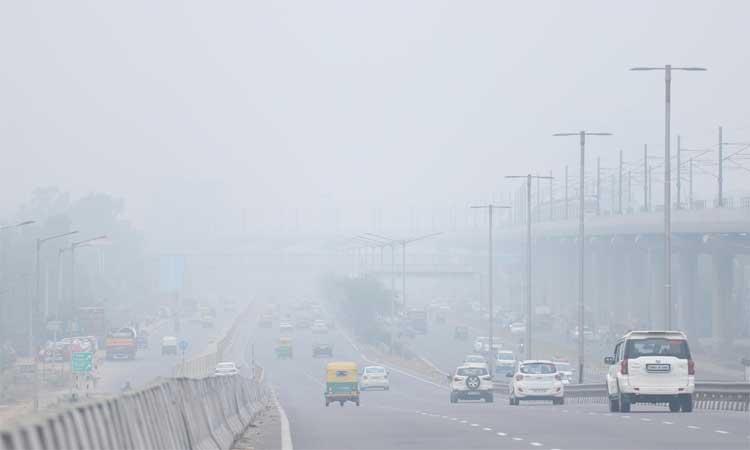Cocktail of stubble burning from the adjoining states and slow winds taking Delhi-NCR's air quality to the "Very poor" category. A layer of smoky haze lingered over Delhi-NCR on Wednesday, government officials said.
As per the Central Pollution Control Board, Delhi's neighbouring regions -- Ghaziabad, Faridabad, Noida, and Greater Noida -- are logging 'very poor' quality of air, while Gurugram is in the 'poor' category. Ghaziabad and Greater Noida's air quality remained the worst of all.
The National Capital's air quality index stood at 326 at noon, in the very poor category. Nineteen out of 36 pollution monitoring stations in Delhi showed a 'very poor' air quality index reading. The Wazirpur area has the most noxious air at 399, followed by Bawana at 392, Rohini at 391, and Jahangirpuri at 383.
"Visibility in the region has dropped to 800 metres as against 2,000 metres in the morning. There is a layer of pollutants in the atmosphere from the smoke emanating from stubble burning and local sources. There will be no respite for the next 2-3 days," said Kuldeep Srivastava, Head of India Meteorological Department's Regional Forecasting Centre.
Vijay Soni, a scientist at the air pollution division of India Meteorological Department, told IANS that Punjab recorded 2,500 farm fires on Tuesday, whose smoke, combined with the low wind speed, have resulted in deterioration of air quality in the national capital and surrounding regions.
On the contrary, the Ministry of Earth Science's System of Air Quality and Weather Forecasting and Research stated the boundary layer wind direction is "not favourable for direct fire-related transport". The share of stubble burning in Delhi's pollution air is estimated to be only 5 per cent for today.
The share of stubble burning accounted for 10 per cent of Delhi's pollution on Tuesday, 16 per cent on Monday and 40 per cent on Sunday, the maximum so far this season. Last year, the farm fire contribution to Delhi's pollution had peaked to 44 per cent on November 1.
The air quality forecasting agency added, "A significant improvement from the peak AQI value, four days back, to current AQI is mainly attributed to increased local surface wind speed combined with not so favourable boundary layer winds for the fire-related intrusion. However, boundary layer winds are likely to shift to North-westerly, some increased intrusion, and marginal deterioration is expected for the next three days."
Nationwide, Haryana's Ambala is recoding the worst air quality at 444, followed by Uttar Pradesh's Moradabad, Muzaffarnagar and Baghpat which are recording AQI readings of 420, 415 and 407, respectively. Shillong has the cleanest air in the country.
"Transport of smoke caused by stubble burning in Punjab and air pollution are affecting India from north to south, even reaching the Arabian Sea," European Union's Directorate-General for Defence Industry and Space said in a statement.


















